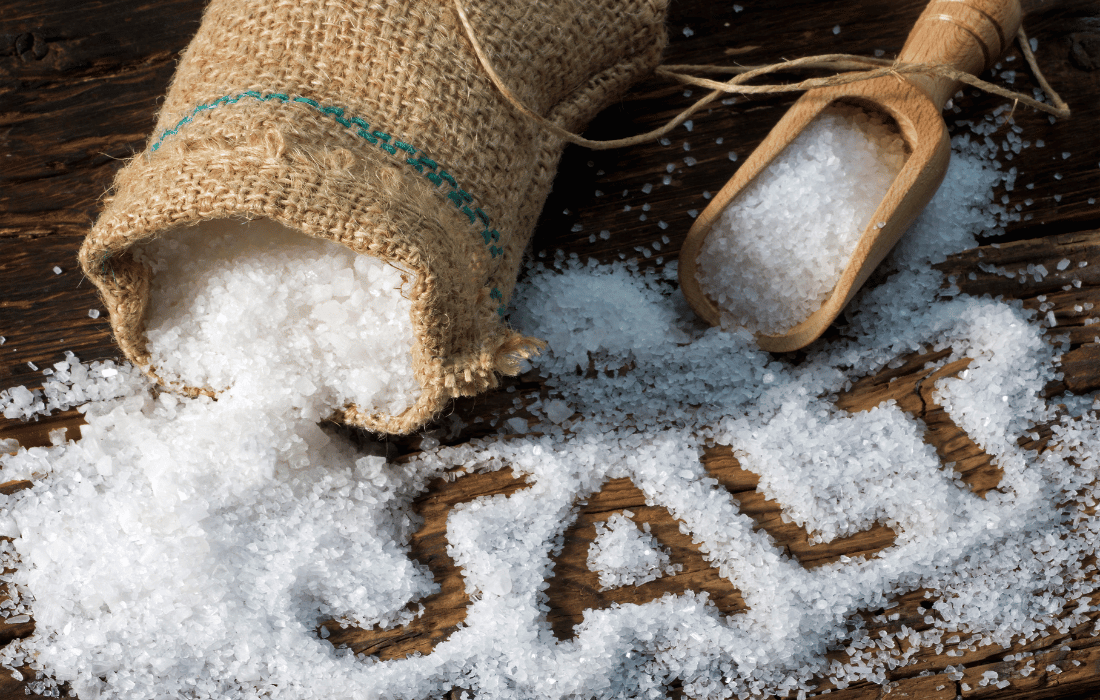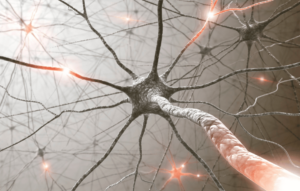For decades, salt has been demonized as one of the biggest villains in our diets. “Watch your sodium,” “Cut back on salt,” and “Too much salt will raise your blood pressure” are phrases we’ve heard countless times from doctors, dieticians, family members, and public health officials. But what if I told you that salt isn’t the enemy? In
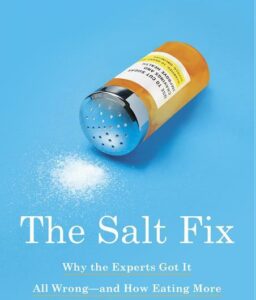
fact, your body might actually need more salt to function at its best.
Dr. James DiNicolantonio’s book The Salt Fix dives deep into this controversial topic, challenging everything we’ve been taught about sodium. As a health coach, I’ve seen firsthand how changing perspectives around salt can improve energy levels, performance, and overall health for both myself and the people I work with. Let’s break it down.
Why Salt Got a Bad Rap
The war on salt started in the mid-20th century when doctors and scientists began associating sodium consumption with high blood pressure. There were some small initial studies done that weren’t actually as definitive as they were presented to be, but the fear caught on like wildfire. Soon, government guidelines and medical advice zeroed in on reducing salt intake, leading to decades of “low-salt” recommendations.
Here’s the kicker: not everyone is salt-sensitive. Only a fraction of the population – about 25% – responds to excess sodium with elevated blood pressure, and some people actually have the opposite effect where their blood pressure will go up on a low-sodium diet. Yet the blanket advice to cut sodium is handed out to everyone. This approach ignores the essential role salt plays in the body, as well as the variability between different populations – AKA bio-individuality.
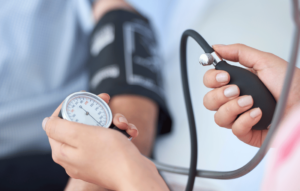
Salt Is Essential, Not Optional
Salt isn’t just a seasoning – it’s a life-sustaining nutrient. Sodium, one of the key components of salt, is crucial for:
- Nerve Function: Sodium allows your nerves to send signals, helping your brain and muscles communicate.
- Muscle Contraction: Want strong, effective workouts? Sodium plays a key role in contracting muscles.

- Hydration: Salt helps your body retain water and maintain electrolyte balance, which is essential for endurance and recovery.
Without enough salt, you’re likely to experience fatigue, cramping, brain fog, and even hormone imbalances. Many people suffering from these issues might think they’re dehydrated or lacking in other nutrients, but the truth is they’re often just not getting enough sodium.
Why Men Need More Salt
As men, we often push our bodies to the limit – whether it’s through intense workouts, demanding jobs, or long days out on the hunt. Salt plays an especially important role for active men.
When you sweat, you’re losing sodium. That post-workout muscle cramp? It’s often a sign your body is crying out for more salt. But many of us have been conditioned to avoid sodium at all costs, so we miss the opportunity to replenish what our bodies truly need.
Dr. DiNicolantonio emphasizes this point in The Salt Fix: if you’re sweating a lot or following a low-carb diet (like keto), your salt needs are even higher. Cutting carbs causes your body to excrete more sodium, meaning you need to replenish it or risk feeling sluggish, dizzy, and weak.
Low Salt, Big Problems
Ironically, following a low-sodium diet can often cause more harm than good. Here are a few of the risks associated with not getting enough salt:
- Dehydration: Without enough sodium, your body struggles to hold onto water. You might feel thirsty all the time, but drinking more water won’t fix the problem without the right balance of electrolytes.
- Low Energy and Fatigue: Sodium is crucial for maintaining energy levels. If you’re dragging through the day, low salt could be to blame.

- Hormonal Imbalances: Low sodium levels have been linked to reduced testosterone production in men, impacting everything from muscle growth to libido.
- Heart Risks: Believe it or not, some studies show that too little sodium can actually increase heart-related risks, especially in those with existing health conditions.
Salt and Blood Pressure
The biggest fear around salt is its supposed impact on blood pressure. Here’s the truth: for the majority of people, salt intake has little to no effect on blood pressure. In fact, studies show that increasing potassium intake is far more effective at managing blood pressure than cutting sodium.
If you’re salt-sensitive or have high blood pressure, you don’t need to avoid salt altogether – you just need to pair it with a potassium-rich diet (think fruits, vegetables, and leafy greens) for balance.
Salt for Performance and Recovery
Dr. DiNicolantonio’s research sheds light on how salt can be a game-changer for athletic performance and recovery. Here’s how:
- Enhanced Stamina: Adding a pinch of salt to your pre-workout hydration can improve endurance and reduce muscle fatigue.
- Faster Recovery: Sodium aids in muscle repair.
- Better Hydration: Mixing salt with water keeps you hydrated longer, especially during long training sessions or hot days.

This is why many elite athletes prioritize sodium intake – it’s not just about avoiding cramps; it actually does help you perform at your best.
Making Salt Work for You
If you’ve been avoiding salt out of fear, it’s time to rethink your approach. Here are some tips to get started:
- Experiment With Timing: Try adding a pinch of salt to your morning water or pre-workout drink to see how it affects your energy and stamina.
- Choose the Right Salt: Ditch the processed table salt and opt for a high-quality sea salt that contains additional minerals.
- Balance Electrolytes: Pair your sodium intake with potassium and magnesium for optimal health.
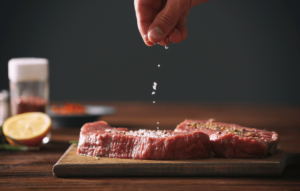
How Much Salt Do You Really Need?
This is the million-dollar question. The answer isn’t one-size-fits-all, but Dr. DiNicolantonio offers a practical guideline: listen to your body. Most people thrive on around 3,000-5,000 mg of sodium daily. For active men, this number might be even higher.
Signs you might need more salt:
- You feel dizzy or lightheaded during workouts.
- You experience frequent muscle cramps.
- You’re tired or irritable for no obvious reason.
Keep in mind, not all salt is created equal. Processed foods often contain low-quality, refined sodium. Instead, opt for natural, mineral-rich salts like sea salt for maximum benefits.
Closing Thoughts
Dr. DiNicolantonio’s The Salt Fix isn’t just another diet fad book – it’s a wake-up call to rethink this whole narrative we’ve been fed about salt. For men, especially those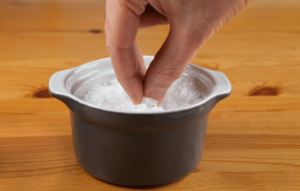 who are active, cutting salt could mean cutting your energy, performance, and overall well-being.
who are active, cutting salt could mean cutting your energy, performance, and overall well-being.
Salt isn’t the enemy it’s been made out to be; it’s an essential part of a healthy, high-performing body. So, the next time someone tells you to go low-sodium, think twice – and maybe reach for another pinch instead.

